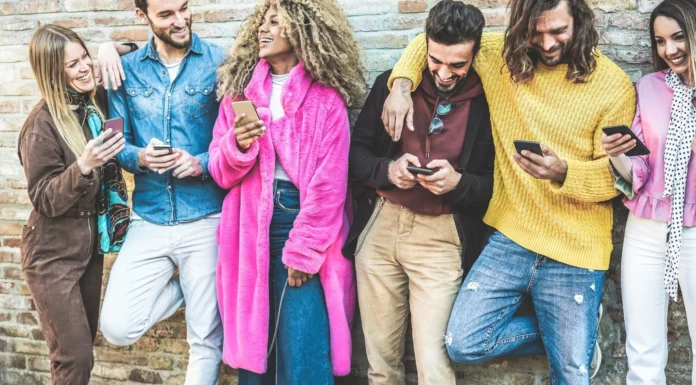Fashion has long been considered a powerful form of self-expression, but its influence extends beyond personal style. In recent years, the fashion industry has increasingly embraced social causes and used its platform to advocate for change. Visit fashionlifeslylenews.com to learn more about how fashion can help people feel more empowered and create social development.
From promoting sustainability and inclusivity to addressing issues such as gender equality and body positivity, fashion has pushed social agendas. This article explores fashion’s significant role in shaping social narratives, challenging norms, and fostering positive societal change.
Fashion and Sustainability
In recent years, sustainability has become a central focus in the fashion industry. From adopting eco-friendly materials to embracing ethical manufacturing practices, fashion brands are redefining their impact on the environment. By raising awareness about the detrimental effects of fast fashion and promoting conscious consumerism, the industry aims to create a more sustainable future.
Inclusivity in Fashion
Fashion has the power to redefine beauty standards and challenge traditional norms. By embracing inclusivity, the industry is breaking barriers and celebrating diversity in all its forms. Fashion shows featuring models of different ethnicities, body sizes, and ages send a powerful message of acceptance and inclusiveness, fostering a more inclusive society. Click at stylemulberrysale.com to get more information about how fashion can help break down boundaries and promote inclusiveness.
Fashion and Gender Equality
Fashion plays a crucial role in challenging gender stereotypes and promoting gender equality. By designing gender-neutral collections and featuring non-binary models, fashion brands encourage the fluidity of gender expression. Their designs advocate for a world where individuals can express their identity without limitations.
Body Positivity in Fashion
The fashion industry has often been criticized for perpetuating unrealistic beauty standards. However, there is a growing movement towards body positivity and inclusivity in fashion. By featuring models of diverse sizes and shapes, fashion brands promote self-acceptance and redefine beauty beyond societal expectations.
Fashion as a Vehicle for Cultural Appreciation and Representation
Fashion is a powerful medium for cultural expression and appreciation. By drawing inspiration from various cultures and incorporating traditional elements into their designs, fashion designers contribute to celebrating and preserving cultural heritage. This promotes cross-cultural understanding and fosters a sense of unity in an increasingly interconnected world. Click on this site womenblog.us and unleash your sense of style to question cultural standards and promote equality.
Fashion Activism
Fashion activism has emerged as a form of protest and expression. Clothing items with powerful slogans and symbols are used to make bold statements about social and political issues. From supporting LGBTQ+ rights to advocating for climate change action, fashion activists use their creativity to spark conversations and inspire action.
Collaborations between Fashion and NGOs
Fashion brands often collaborate with non-governmental organizations (NGOs) to amplify their social impact. These partnerships raise funds, increase awareness, and support various causes such as education, healthcare, and disaster relief. By combining fashion’s influence with the resources and expertise of NGOs, they create a powerful force for positive change.
Fashion’s Role in Philanthropy
Fashion events, such as benefit galas and charity fashion shows, have become platforms for philanthropy. Designers, celebrities, and influencers come together to support charitable causes, raising funds and awareness for organizations tackling pressing social issues. Fashion’s philanthropic efforts demonstrate its commitment to giving back to society.
Power of Fashion Influencers
Fashion influencers have gained significant prominence in the digital age. With large followers and dedicated audiences, they can shape opinions and spark trends. Many fashion influencers leverage their platforms to raise awareness about social causes, encouraging their followers to take action and make a difference.
Fashion Education and Social Responsibility
Fashion education institutions play a vital role in shaping the industry’s future. By integrating social responsibility into their curricula, these institutions promote ethical practices and equip aspiring designers with the knowledge and skills to create positive change. Through education, the fashion industry can continue to evolve and address societal challenges effectively.
Challenges and Criticisms of Fashion’s Social Engagement
Despite its positive impact, fashion’s engagement with social agendas is not without challenges and criticisms. Some argue that certain initiatives are merely performative and lack substantive action. Additionally, cultural appropriation and worker exploitation persist within the industry. The fashion community must address these concerns and strive for genuine and sustainable change.
Conclusion
Fashion has transcended its role as a creative outlet and has become a catalyst for social change. From promoting sustainability and inclusivity to challenging gender stereotypes and advocating for charitable causes, fashion can shape social narratives and push for a more equitable and progressive society. By responsibly leveraging its influence and platform, the fashion industry can continue to make a meaningful impact and inspire positive change.









